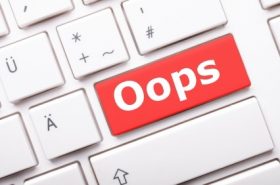
Festive Digital Detox
Festive digital detox – top tips. Will you enjoy a digital detox over the festive season and switch off from work emails? We have written about the benfits of a digital detox many times before. But htis year perhaps more than any other, we all need a festive season digital detox. If ever there was a time of year to have quality time with family and friends, it’s Christmas. Nonetheless, many people find it hard not to check their work emails. They feel someone expects them to be reading emails even on Christmas Day. But do they? Or is it just a cover-up for some form of email addiction, fear of missing out, personal inadequacy, etc.
We have written many times before about the importance of having an email free vacation. A full digital detox would involve switching off from all digital devices. However, the Christmas period is probable one of those times when you will want to use digital media (eg WhatsApp, FaceTime etc) to contact family and friends who are not going to be with you. That does not mean you should also take a quick peak at work-related emails and social media posts. Make the Christmas break a time to re-balance the work-life balance and have quality time with those you care about and who really care about your well-being.
Here are five top tips to enable you to safely switch-off from work related emails, relax and enjoy at least a partial digital detox.
Remember too that this is a high risk time for cyber attacks Click here to top tips on how to improve your defence to potential cyber attacks especially at home.
Tags: Christmas digital detox, Cyber crime reduce risk, Digital detox, Email free Christmas, out of office message

Improving Personal Cyber Security – Top Tips
Improving personal cyber security is key to reducing cyber crime because the weakest link in any organisation’s defence against cyber crime is we the users. Email is the number on vector for cyber crime. Time poor and often working under pressure we make mistakes. We open attachments and links which contain malware and inadvertently share confidential information.
Here are over twenty top tips to improve your personal cyber security from better email management to protecting your personal identity when eating out.
Click here to download the document.
Strong password are vital – click here for top tips to create strong passwords and manage them.
Tags: Password Management, Personal cyber security
Top tip on email etiquette: punctuation matters, even on the least formal email and the apostrophe is one of the least-understood marks. One of the difficulties in writing email is that it has replaced so many forms of business communication from the telephone conversation, through the informal memo, to a letter even a short report. Whatever the formality of the document, it is the punctuation that gives your words voice tone and makes your meaning clear.
Over 90% of the people who attend my in-house workshops on punctuation name the apostrophe as the mark they would most like to understand and be able to use correctly. Whether it’s whether one is needed at all, whether to place it before or after the ‘s’ and how to use it when names end in ‘s’.

Email Etiquette: Punctuation Matters
Most people look blank when faced with rules such as, place the apostrophe after the ‘s’ on a plural unless the plural is not made by the addition of ‘s’ in which case the apostrophe is placed before the ‘s’. And who can blame them!
One of the best-kept secrets in punctuation is that there is actually only one rule that matters, because it encompasses all the other ones and ensures that the apostrophe is always in the right place.
Before you can use the rule you have to answer three simple questions:
1.Is anything owned?
The apostrophe is a hook, it hangs on a word to warn the reader that it is not a plural, the ‘s’ indicates ownership.
2.What is owned?
This might be something tangible like a pen or laptop, or something less so like an office. It might be a mood, feeling or advice. The terms ‘owned’ or ‘used’ are generally used to loosely describe this.
3.Who is the owner?
This might be a named person, a group, and organisation, etc.
So the punctuation rule that everybody needs? Draw a circle around the name of the owner and the apostrophe will always go on the circle.
Good email etiquette and punctuation means its easier for people to read your email and less scope for mis-understanding. All this saves time, reduces email overload and hence helps improve productivity and well-being.
Joanna Gutmann, author of Readability and leader of in-house workshops on punctuation and the mechanics of writing gives a useful tip to get the apostrophe right every time.
Tags: email etiquette, email punctuation, Improve productivity, Joanna Gutman, well being
Reduce Cc’d Emails Top Tips

Reduce cc’d Email
Published in Executive Secretary Magazine Sep/Oct 2019
Most of us need about 50% of the email we need. The other 50% being unnecessary Cc’d emails or newsletters.
Here are top tips to reduce the Cc’d email which include scheduling some meeting free time through to writing rules to filter it all out. Click here for more. Alternatively email us and we can send you a
Do you use smart meeting management tools? We have seen how Microsoft Outlook Scheduler can help save time finding dates. But what about organising all the associated paperwork eg minutes. Read on with a Guest Blog from from Ashley King of Matchware
Five ways time and £191 Billion are wasted on meeting management
Studies suggest that the cost of unproductive meetings in the UK is a staggering £191 Billion. It is incredible that businesses in 2019 are literally throwing a significant amount of money down the drain, money and time that could be better spent elsewhere within the business to make it more profitable. It may come as no surprise to see the 5 common meeting complaints that follow:

£19 Billion wasted through poor meeting management.
1. That meeting was a waste of my time
2. People haven’t done their actions from last meeting
3. It is taking a long time for minutes to be generated
4. Gathering information from previous minutes is a lengthy process
5. Meetings are regularly running over their allotted time
Often when I discuss the common meeting complaints with people who regularly attend meetings, I receive the nods and smiles that cover a lot of frustration when they are thinking about their meeting process.
How can you save money and time organising meetings?
By working towards changing the complaints above, businesses can save literally thousands, whilst freeing up time to take advantage of opportunities that were once unattainable as a result of everyone being tied up in meetings.
There are incredible opportunities for PA’s/EA’s to make changes to the meeting process that drive several efficiencies for their companies, whilst also getting the recognition as the valuable asset they truly are.
How to make the changes?
From speaking to thousands of PA’s and EA’s, I’d suggest starting with looking at the meeting process. In most cases, looking at how software can help can make a huge difference. OK, so you have had the same process for years and “it works”, but it can be the cause to the complaints above.
It is quite popular for businesses to have quite a manual process in place, but have you honestly critiqued your meeting process? It fascinates me that in 2019, many haven’t, and many continue to use a manual process. Many are still doing the same things people were doing 20 years ago!
Knowing how technology has improved our lives so much over 20 years, is it possible that there is software to help the meeting process too? Of course there is!
OK, what can I do to change this?

In simple terms, you can leverage software. Things that take you 10-20 minutes can be done in 1 or 2 clicks. Over the course of the meeting process, there can be significant savings in time for organisers and attendees of meetings. Through software like MeetingBooster, you have several tools at your disposal that help meetings to run with a clear purpose, on time, avoiding unproductive and over running meetings. Imagine what businesses could achieve if they clawed back the time lost in unproductive meetings to focus on driving the company forward? Imagine being the one that made it possible for your business?
Ashley King, Matchware
Tags: Ashley King, MeetingBooster, Microsoft Outlook Scheduler, Smart meeting management